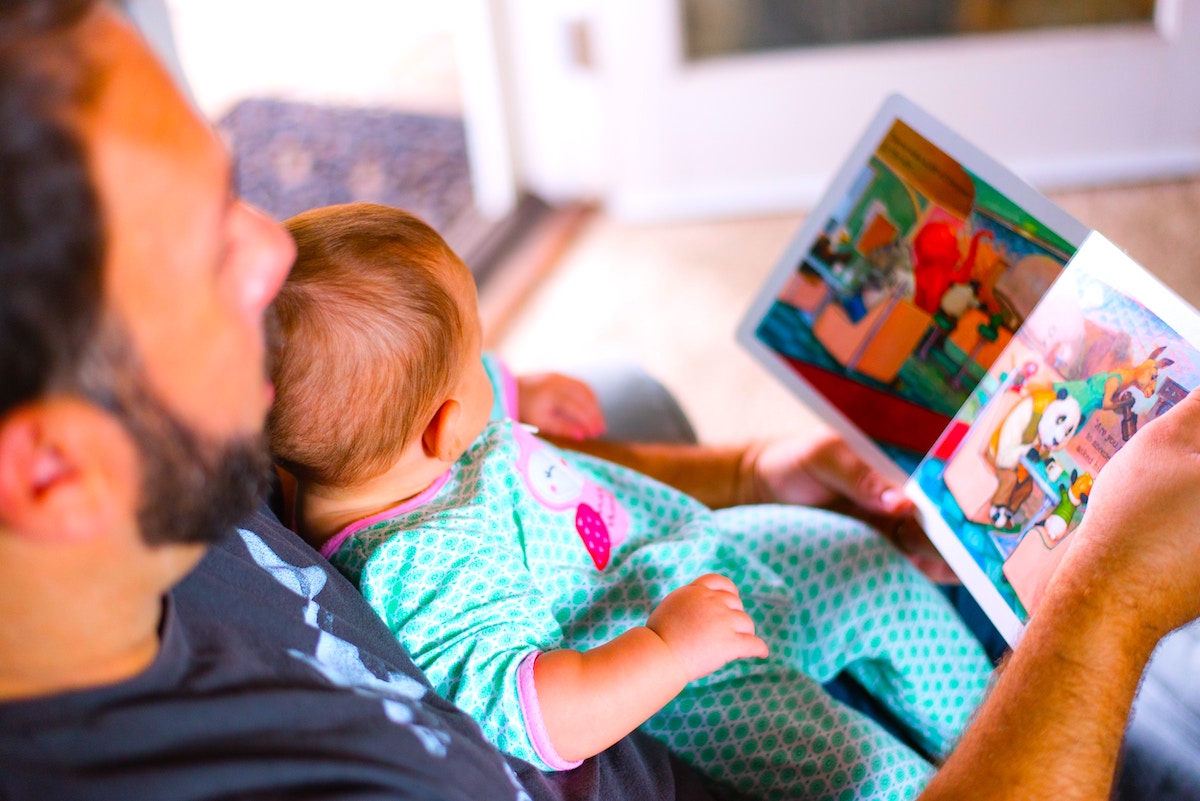Why You Should be Talking to Your Baby
Only 34% of Georgia children are proficient readers. This represents a crisis for our state; many academic, economic, and health outcomes are built on a foundation of language and literacy. It is imperative that we educate ourselves and promote skills which result in children with rich language skills who are proficient readers, high school graduates, and successful members of society. Did you know that talking to your baby during his or her first three years of life is one of the most important things you can do to prepare them for a lifetime of success?
Children from higher-income families tend to hear 2,000 words an hour, while those in low-income families hear only 600 words. By the time these children are three, this results in a 30-million word gap between low and higher-income families. This word gap results in drastic differences in literacy and academic performance that have lifelong implications for Georgia’s children.
Here’s why you should be talking to your baby:
Because brain growth depends on it
Just as children require proper dietary nutrition to fuel their growing bodies, they need “language nutrition” to build connections that are the foundation for their future ability to learn. Your child’s brain completes its most dramatic development during the first three years of life. Without proper language nutrition, which includes both quantity and quality of language, children will fall behind in development and learning. Talk often to your baby and toddler and trust that you’re helping to build the connections that will foster future growth and learning!
It lays the groundwork for healthy social skills
Young infants rely on parents to initiate communication exchanges and older babies make eye contact, facial expressions, and babble. Parents respond with speech, eye contact, and facial expressions. If the baby does not receive a response or if responses are unreliable, the baby’s brain does not develop as it should. The quality of the relationships your child forms with you and other adults lay the groundwork for future social success: healthy mental development, conflict resolution, self-confidence, and self-regulation.
It affects emotional health & behavior
Language development is one of the major determinants in your child’s healthy emotional development. Having strong language skills will allow your child to label and communicate their emotions, resulting in a more emotionally healthy child. Additionally, children with strong communication skills exhibit fewer behavioral problems.
Because their future literacy & academic success depend on it
The strongest predictor of a child’s academic success is the quality and quantity of language spoken to them in the first three years of life. Being a proficient reader by the end of third grade is critical for future academic success and high school graduation. By third grade, children are no longer learning to read, but are reading to learn. Children who aren’t proficient readers by third grade quickly fall behind. The most significant predictor of high school graduation is third grade reading proficiency. According to The Annie E. Casey Foundation, children who cannot read by third grade are four times more likely to drop out of high school.
It will affect your child’s lifelong success
Dropping out of high school has life-long consequences; high school dropouts are much more likely to be unemployed, involved in violence, become teen parents, or to be incarcerated. Talk to your baby so that she will develop good language and literacy skills, become a proficient reader by third grade, and be likely to graduate high school and have a successful, fulfilling life!
Your child may actually live longer
People who have a high school degree have a longer life expectancy. They are also less likely to develop diabetes, heart disease, obesity, or to start smoking. The higher the level of education achieved, the more likely your child is to be healthy and live longer.
How to talk to your baby
To build a habit of language nutrition, begin speaking to your baby during pregnancy and continue after birth. When speaking to your baby, make eye contact, use plenty of loving words and facial expressions, repeat everything, and don’t interrupt or look away when your child tries to respond. If your family is bilingual, talk to your baby in the language you are most comfortable speaking. If you’d like more information, Talk with me Baby offers videos that demonstrate speaking “Parentese”.
All parents want the best for their children, but many health and educational opportunities require financial resources some parents don’t have. Talking to your baby is completely free and may be the most important thing you can do to improve your child’s chances in life. Take advantage of the cheapest and most effective way to improve your child’s future!
Resources:
Annie E. Casey Foundation
Talkwithmebaby.org

